Will training on mutation induction catalyze breeding for rice varietal improvement in Tanzania?
- 12th October, 2022 13:18
- By NGABO.PAMBA
- News
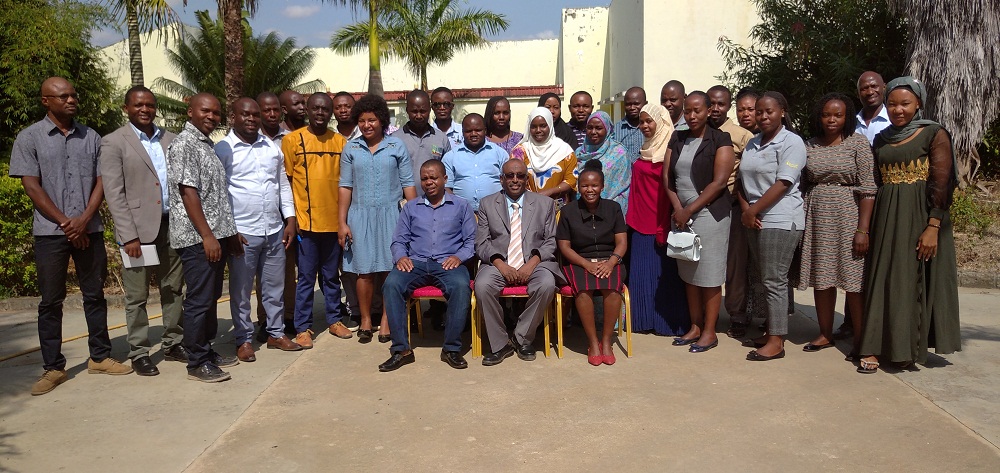
The training on Mutation Breeding kicked off on the 3rd of October 2022 through 7th October 2022 bringing together about 36 researchers and interns (about 14 females, 22 males) from Tanzania Agricultural Research Institute (TARI) in Tanzania Mainland and Zanzibar Agricultural Research Institute (ZARI) in Zanzibar Islands. It was held at TARI Dakawa Centre, Morogoro, Tanzania.
The intent of the training was to incapacitate the research cadre on mutation induction techniques as technologies to fast track rice breeding programs in Tanzania through which rice farmers would be able to get rice seeds with traits of their preference in shorter period of time and eventually boost rice productivity and production in the country.
The training entailed introduction to sources of irradiation, theory and practice of mutation induction, theory and practice of radio-sensitivity testing with emphasis on rice, development and handling of mutant pupulations including screening and phenotyping protocols for salt tolerance in rice, and doubled haploid, rapid generation cycling and molecular markers as techniques to enhance efficiency of plant mutation breeding. In the course of the delivery of these topics, participants communicated interactively among themselves and between them and the facilitator through lectures and buzz group assignments. Either, the facilitator allowed for plenary discussions through which participants would query, ask clarifications and receive responses on matters pertaining to the training.
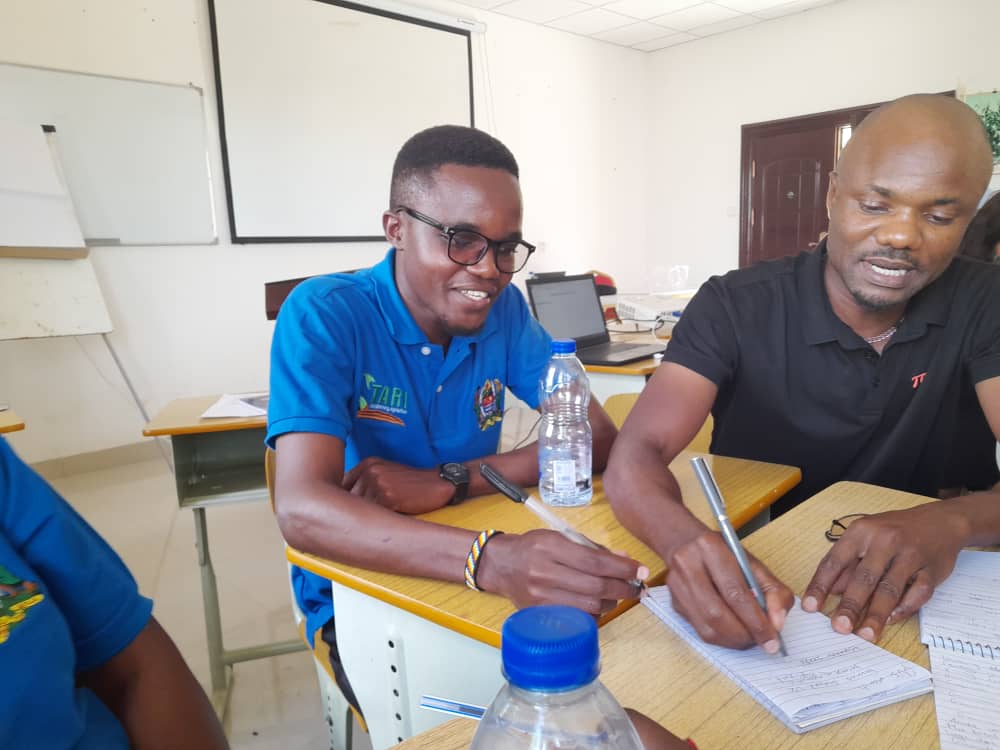
Some of the trainees in group work assigned during the training. Credit: Ngabo
This national training was organized by ZARI and TARI in collaboration with the International Atomic Energy Agency (IAEA) under the Technical Cooperation National Project URT 5037 titled 'Developing Rice Varieties With Resistance to Rice Blast and Salinity Tolerance' , the facilitator of which was the Ex Plant Breeder and Geneticist FAO/IAEA, Dr. Abdelbagi M.A. Ghanim from Sudan.
New hopes to researchers arose as far as the timing of developing new rice varieties is concerned as the training unveiled techniques that would enhance efficiency of research for varietal improvement and hence shorten the duration for release of the new variety. Thus, when infrastructures/facilities for mutation are put in place, rice farmers should expect varieties with market qualities and adaptive to the rapid changing adverse climatic conditions within two to three years than the conventional breeding techniques that last for up to ten years.
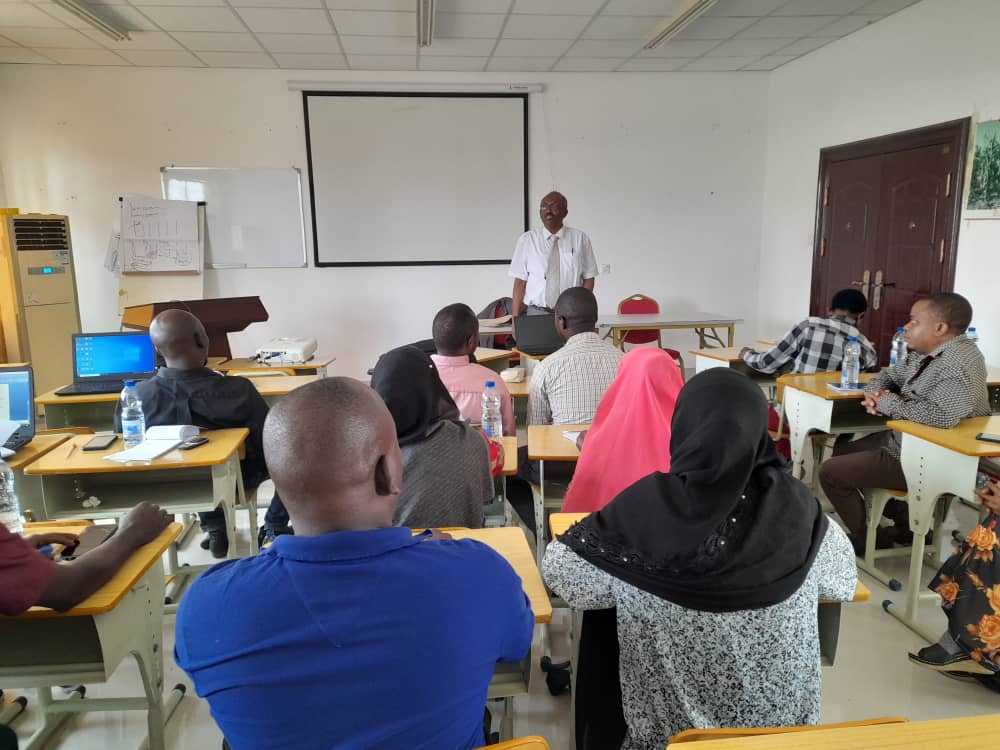
The training facilitation is well administered by Dr. Abdelbagi, an ex-expert in plant breeding and genetics from IAEA meanwhile the trainees are attentively following. Credit: Ngabo
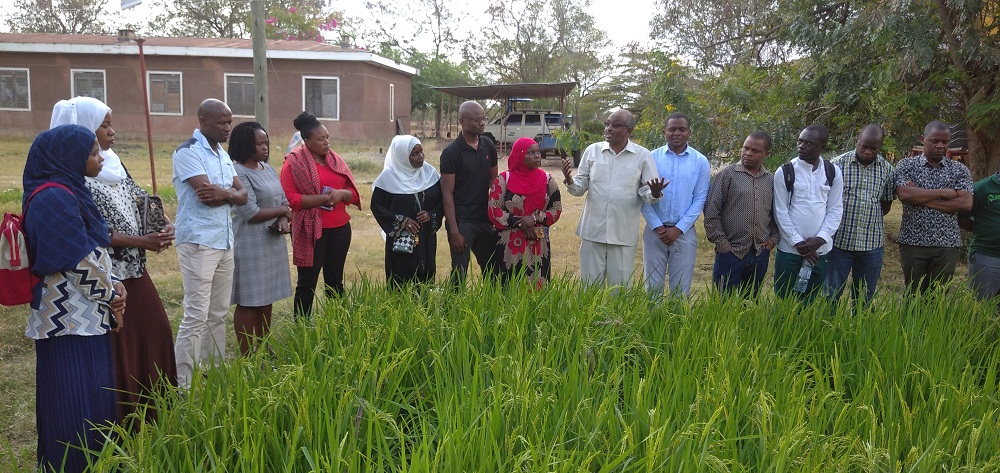
Dr. Ghanim, the training facilitator explains something as the trainees visited on-station mutant rice trials set up at TARI Dakawa centre. Credit: Ngabo
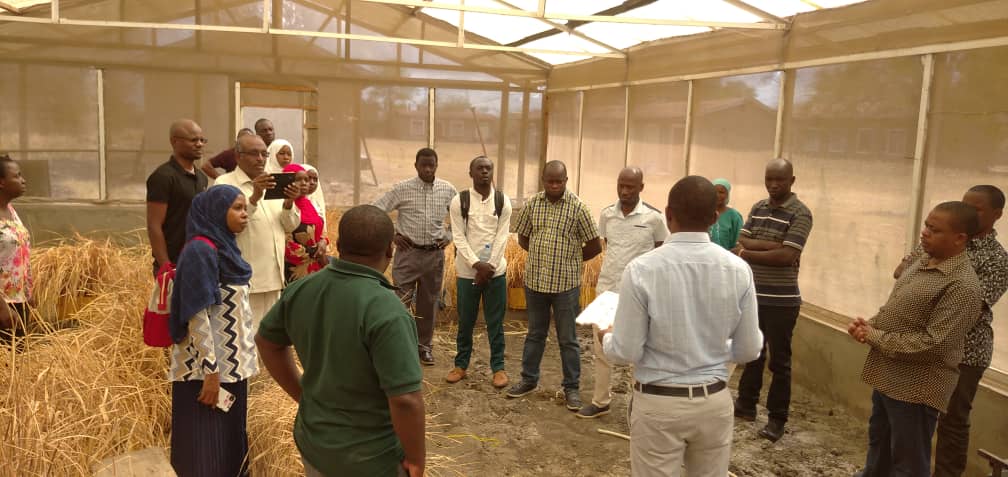
In on-station screen house based at TARI Dakawa centre trainees are being introduced of the in-vitro salinity trials conducted. Credit: Ngabo

